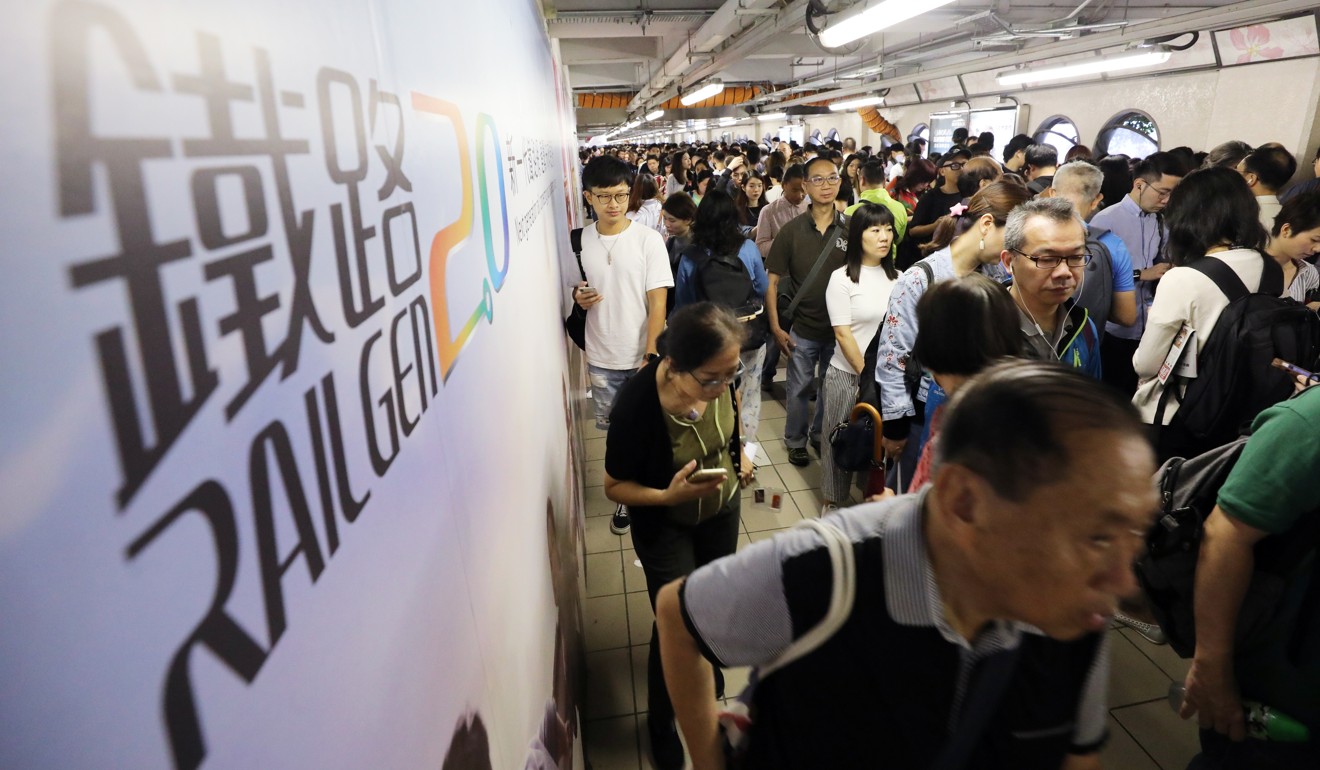
Hong Kong’s MTR passes evening rush hour test after morning travel chaos
No repeat of morning disruptions on rail network as Hongkongers return home after work
The MTR Corporation had mobilised 200 extra staff to deal with the evening rush.
The simultaneous disorder, unprecedented in the history of the MTR, had begun shortly before 6am and lasted for more than six hours. It initially affected the Island, Kwun Tong and Tsuen Wan lines but the disturbance subsequently spread to the Tseung Kwan O line.
Delays were not that frequent in the past but now there are eight to 10 per year.
Winnie Lam, who works in the insurance sector, said it took her an hour to travel from Quarry Bay to Central because of the traffic disruption on Tuesday morning. The journey usually takes about 15 minutes.
The 40-year-old said she had lost confidence in the MTR.
“Delays were not that frequent in the past,” she said, “but now there are eight to 10 per year.”
“Hongkongers rely on the MTR too much. Whenever there is a glitch, then the seriousness [of the impact] is huge,” she said.
Financial planner Lai Yuen-lang, 23, said he had previously encountered delays on the Kwun Tong line once or twice a month. On Tuesday morning, he switched to cross-harbour buses after learning of the disruption.
But he said he wouldn’t stop taking the MTR as “there is no alternative”.
“I hope the MTR can consider this: when they build new rail lines, it should also maintain the services of its existing lines,” Lai said, referring to the Island, Kwun Tong and Tsuen Wan lines, the city’s three oldest underground networks.

The root of the disturbances could be the upgrading of current rail systems.
The MTR Corp’s operations director Adi Lau Tin-shing said the company would have to investigate whether the signal glitches were caused by the upgrade of the Tsuen Wan line’s signal system on Monday night.
“We conduct re-signalling every night and we did it on the Tsuen Wan line last night,” Lau said. “But we have to further investigate if the upgrade caused the signal failure on the Tsuen Wan line and the others.”
In 2016, the rail firm warned of possible morning delays or slowdowns on its network over the next decade as engineers test replacement rail systems during the early hours.
Train tests have been carried out in phases on new signalling systems in the short window of overnight non-service hours; the whole replacement project, which covers eight lines, will continue until 2026.
The MTR Corp, which provides 49 per cent of Hong Kong’s public transport services, currently carries 5.8 million passenger per day.
In 2017, the rail giant recorded 10 incidents of service delay of 31 minutes or longer and was fined HK$22.5 million (US$2.87 million).
One of the worst service disruptions, which lasted more than 10 hours, took place on the Kwun Tong line in August 2017.
The faulty data links resulted in a signalling problem and triggered a shutdown of operations as a safety measure.

